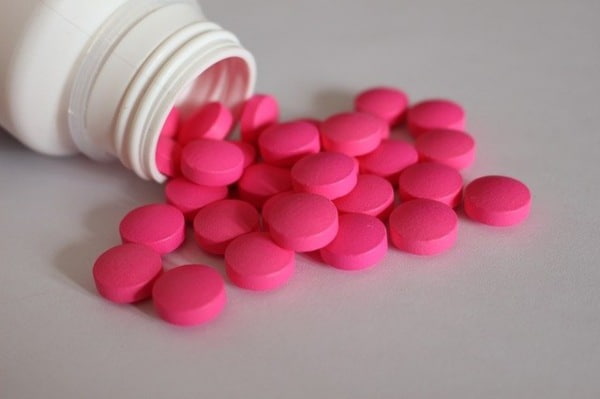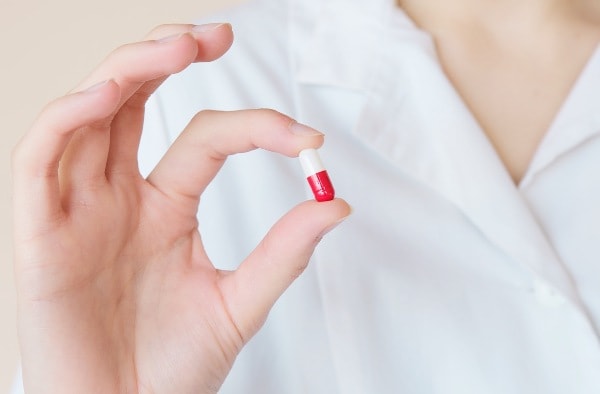The placebo effect is a very powerful tool, and it’s probably affecting your life more than you think.
Are you someone who believes in mind over matter? That your mindset plays a large, if not larger, role in your wellbeing than your physical actions do?
Or are you someone who trusts solid action over the fluffy mindset stuff?
Either way, you’re probably right.
Let’s dive into the placebo effect to see why.
What is the placebo effect?

In short, the placebo effect is where someone reacts to a dupe treatment as if it is the real thing even though it is not.
The most common use of placebos is in the testing of treatments. Placebos are very important in clinical trials, where a new treatment (such as a drug), is tested against a placebo (such as a fake drug or dummy pill), to see if the drug actually works.
For the drug to be effective, it must have the intended effect AND a significantly greater effect than the placebo. Otherwise, any effects of taking the drug are dubbed as “just placebo.”
It turns out the placebo effect is actually quite hard to beat (and it’s getting stronger!…more on that later).
While having a stronger placebo effect than drug effect may be devastating to the drug developer, there is some good news here…
Maybe it’s not that the drug is bad. Maybe the placebo is just really good.
The interesting part of placebo, is that a placebo treatment doesn’t necessarily have no effect. Placebos often have a positive effect – i.e. better than taking nothing. Participants in drug trials for example, can show medical improvements and react to a placebo drug as if they are receiving the real drug.
Essentially, the idea that they are taking a drug that is supposed to help them get better, is what actually helps them get better, regardless of whether the pill they are given has any active ingredients or direct therapeutic effects.
A pretty intense case of mind over matter if you ask me.
And there are some truly mind-boggling cases!
Examples of the placebo effect:
- Individuals with sensitivity to a poisonous leaf, developed a rash when touched with a non-poisonous leaf that they were told was poisonous. They did not develop a rash when touched with the poisonous leaf that they were told was non-poisonous (1).
- Patients with Parkinson’s disease were hooked up to an electrode machine. They were able to move more when told that the machine was on, and less when told that the machine was off, regardless of whether it was actually on or off at the time (2).
- Individuals given a milkshake that was branded as a high-calorie milkshake felt more full after drinking it than individuals who were given the same milkshake but told that it was low-calorie. The difference in satiety was measured through the different response levels of the hormone ghrelin (3).
- In two groups doing the same amount of physical exercise, one group that was told that their amount of activity was good exercise and constituted a healthy lifestyle, while the other group was not told this information. After 4 weeks, the group that was told this information showed a decrease in weight, blood pressure, body fat, BMI, and waist-to-hip ratio, compared to the other group (4).
- Post-operative patients experienced the same level of pain relief when unknowingly given a dose of morphine vs. when given a placebo (saline solution) that they were told was a powerful painkiller (5).
- Even sham acupuncture and sham surgeries have been shown to have a similar effect on the patient as if the actual procedure had been given (6, 7).
Who knew our minds were so powerful?!
How does the placebo effect work?

The mechanism behind the placebo effect is still quite unclear.
In some cases, the placebo treatment is thought to activate the same biochemical pathways in the brain as the real treatment would (8).
Neurotransmitters such as dopamine and endorphins are released when certain drugs or actions are taken. It is thought that the ritual of taking a drug or other treatment can stimulate this neurotransmitter release, not just the drug itself.
Placebos tend to work best when the effect is based on perception. Things like pain, mood, fatigue, nausea, motivation, stress, etc.
It’s all about association and conditioning. You may associate taking a pill with pain relief. So if you are given a placebo pill, the same mental and physiological processes may take place when you pop that pill.
How can you use the placebo effect to your advantage?
It seems the placebo effect is shaping out to be very powerful stuff.
But I know what you’re thinking…
Sure this placebo stuff is cool, but it won’t work on me. I’m not about be tricked into pretending myself better.
Or maybe you’re just worried that placebo sounds like a whole lot of trickery and deception.
The funny thing is, even when people are told that they are being given a placebo, they can still respond to it! (9, 10)
This may be because the mere act of taking a medication or treatment can help put the body at ease and in a state of healing.
Or, it may work through a bit of placebo-ception: you receive a placebo and are told that you are receiving a placebo because placebos tend to have beneficial results. So naturally, you expect to have a positive response, and voila! You just got placebo-ed!
What’s more, researchers are saying that the placebo effect is getting stronger and stronger over time. More drug trails are failing to work better than placebo. Fortunately, this is not because drug quality is going down, but because our expectations are going up.
With all this potential, let’s dive into how we can harness the power of placebo and use it to our advantage.
Can doctors use placebo?

First, we should probably address the idea that placebo can be used as a prescription.
If placebo can have such a profound effect on the body’s healing, couldn’t doctors prescribe placebos instead of medications to induce the responses the patients are looking for?
Well, they certainly used to. Doctors would commonly prescribe sugar pills for that reason.
But today, we have so many effective medications (proven to outperform placebo) readily available to us, and medical diagnoses and treatments are well informed. Today, placebo prescriptions would just be plain deceptive and could have detrimental consequences.
A major problem with placebo treatments is that they can deter people from actually seeking the treatments that they need and that are proven to work. The placebo effects will likely fade over time.
Just because you feel better, doesn’t mean the problem is gone.
Important note: placebos are not proven to remove tumors, heal infections, fix broken bones, or complete any other medical miracles of the sort.
However, there are still ethical ways that doctors can use the placebo effect to help bolster their patients’ wellbeing.
As mentioned before, ethical placebo treatments where the doctor is honest about the placebo, may still be helpful in some cases (9, 10).
Also, the way a doctor conveys information, diagnoses, or treatment plans, can greatly influence how the patient responds.
A doctor who shows that they care about their patients and know what they’re doing, is going to convey trust, and their patients will believe them when they say a treatment will or will not work.
Placebo should not be used in lieu of proven medicine and treatments, but rather in correspondence with them, in order to have the most beneficial response.
Can patients use placebo?
From the patient side of things, make sure you trust your doctor. A caring and knowledgeable doctor will help you get the most out of the care they are providing you. Also, find treatments that you believe in.
Remember, the routine aspect of receiving a placebo treatment also plays a large role. Getting checked up on by a doctor, following a prescribed treatment, feeling like your problems are being taken care of – all these contribute to your body’s perceived state of healing.
The same can go for other actions you take to benefit your health – choosing healthy foods, exercising, getting fresh air, etc.
Using placebo in daily life
They key takeaway from the placebo effect is that your expectations may predict your future.
Stick with the things that you truly believe in. Find those habits and actions that you believe will give you the positive outcome you want. Your expectations are a good predictor of the outcome.
Be wary of the placebo effect’s alter ego: the nocebo effect. This is where a negative expectation encourages a negative outcome. If you think you’re going to have a terrible day, you are probably going to have a terrible day.
Summary
Placebo treatments can cause real physiological effects such as pain relief, itching, changes in hormones, motor ability, blood flow, weight loss, etc. The expectation of a certain reaction can help cause that very reaction. Use it to your advantage by working with the people and things that you believe in so that you only expect positive outcomes.
Let me know in the comments below if you enjoyed this post on the placebo effect, or have any questions!
